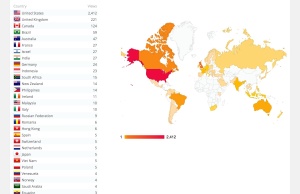
Have you ever received a thank you card describing how much you mean to the sender?
Has someone whispered in your ear that you helped them in ways you’ll never know?
What does it feel like to realize your life, something you said or did, or just were, has meant something special to someone else?
This is the stuff of life, folks. To find your life has meaning. That you’re important. That you have a purpose—you’re here for a reason. You’ve meant something.
If you’ve missed it, you’ve missed the whole point.
yup. the whole. entire. point.
The world advertises life’s meaning. It’s in having the looks. The feels. The flashy cars, decked out beach houses, pools and bling. It’s the stamp of societal approval. It’s getting your nails done, the full spa treatment, in being beautiful, sexy, free. It’s in being loved and wanted like no other, ever before. It’s your kids being shining stars in school, college, and professional success.
Maybe you’ve spent a lot of time trying to achieve those supposed milestones in development. (just kidding. those aren’t really milestones in development.) Maybe you’ve failed and feel like a failure. Or maybe you succeeded and feel empty. Meaningless. Never enough. Maybe that’s because the world was wrong. They missed the whole point.
But it’s not too late.
It’s not too late to find meaning. To experience the promise God gave Abraham, through faith, like literally thousands of years ago:
(but who listens to anyone from the caveman era? what did those neanderthals know?)
“I will bless you. . . and you will be a blessing.” Genesis 12: 2
But we need to stop and think about what that means. What does it really mean to be blessed and to be a blessing? Does being blessed mean all of the above—riches and notoriety and love and great kids? Hold on a sec. Even Abraham’s first two kids ended up fighting–nation against nation. Even up til now. (oops).
I heard a really interesting lesson from this guy once. He didn’t give it from a gold-lined temple for a hefty honorarium. I didn’t see him drive up or off in a fancy car. He didn’t even dress up for the occasion. He looked rather shaggy, actually. Scruffy. Like he’d been out in the desert for a while. But what he said made so much sense. He connected with his audience so well that he had to scramble up a mountain side to share his lesson, so everyone who gathered around could see and hear him. It was pretty mind-blowing.
He said that being blessed wasn’t about stuff. It was about flourishing on the inside.
What?
Yeah. He went on to challenge all the myths about a “blessed” life. He made a list for us. He went down the list, one by one, naming all the things I would have thought meant trouble, not blessing. Things like being poor in spirit. Mourning. Meekness. (Yeah, I thought about Casper Milk-toast on that one. I’m not sure that’s what he meant, though.)
And talk about having hunger and thirst. I hate being hungry or thirsty. Well, if there’s nothing to eat or drink, that is. But that wasn’t an issue, because he passed out a bunch of ready-made baskets of fish and chips. He said if we hunger and thirst for what’s right, that it’s a blessing. I wondered about that. I mean, I look around, and don’t often see what’s right. I see wrongs all around me. Wrongs in the world. Wrongs in the country. Wrongs in the community. Wrongs in families. Wrongs in me. To have hunger and thirst for what’s right, when there’s so much wrong in the world? That didn’t feel like a blessing. I had sort of numbed myself to even feeling that hunger at some point in life. Here he was, saying if we risk feeling hunger and thirst for what’s right that we’ll be filled. Wow.
Hold on, though. There’s more mind-blowing stuff this guy taught.
He said sparing a person the punishment they’re due can actually be a good thing. Not that we turn a blind eye to evil, no, that’s not what he meant. He was talking about that place in our hearts where we try to understand. Where we hold out hope for that person who’s wronged us, that they’ll learn, change, and grow. Keeping that place open in our hearts can make us flourish inside. What? I know. Mind blown.
In fact, he advocated for such a clean slate in the heart that we might see what God is like. I don’t know about you, but when I’d try to see God, I kept seeing the things I expected him to do. Like right the wrongs. Or I’d see people who made mistakes in God’s name. A clean slate of heart? That’s a tall order. But I’m not sure he meant it as an order. It seemed more like an invitation, the way he said it.
He said that if we, from the inside-out, seek to make peace, then we’ll be called children of God. Children of God. Now I know a bunch of people who seem to think that’s what they are. But somehow the way they do go on about themselves, I wasn’t convinced. I heard they made wars over who had the corner on the truth. Like killing each other! I heard they split into thousands of factions, each thinking they were right. But peacemakers? How would they survive long enough to be called anything but foolish?
He wasn’t really too concerned about who was in charge of our governments here, though. He reminded me he was talking about flourishing on the inside. Oh. So, if my heart attitude is toward making peace. . .
His crème-de-la-crème, the topping for this whole introduction speech he gave, was really a doozie. Instead of worrying about what society thinks of us, he said that flourishing on the inside means we’ll basically shrug our shoulders if they reject us, make fun of us, or even if they come after us. It won’t break our hearts. It’ll be a reward of sorts. We’ll have developed the inner strength of our convictions, and we’ll be at rest in the middle of such storms. Showing mercy, maybe? Making peace, maybe?
The other thing I noticed was that he said “blessed ARE.” He didn’t say “will be” or “should be.” I got the feeling he was saying that if we are in the middle of, mourning, for example, that we already ARE flourishing. I thought back to a time I was mourning, and you know what? He was right. It wasn’t in me trying to avoid my anguish, my pain or my sorrow. It was when I was in the midst of it that I received comfort, and flourished, and grew. I grew deeper, more acquainted with the pain others feel. It made me a more compassionate, less judgy, more patient, less dogmatic, as a person.
Yes, I want that kind of flourishing. Not that I want suffering. But let’s face it. Life throws us all sorts of curve balls, no matter how smart or beautiful or rich we are, or aren’t. If I get it, that inner flourishing in the midst of suffering, even a tiny bit of it, you bet I’ll be glad to share it with anyone else who’s interested. And if they get it, and they pass it on, maybe. . . just maybe. . . there will be that feeling that yep, life means something. We were here, going through a bunch of struggle, frustration, loss, and sometimes even anguish, for good reason.
It would be the feeling that I matter, and perhaps more importantly, so do you.
So we don’t have to be rich to enrich someone else’s life. We just need to recognize the goodness of the things we think are troubles. Let Him share it with us on the inside. And pass it on.
Oh, and, by the way, kudos and credits to the guy on the mountain:
Matthew 5: 3-12 NIV
“Blessed are the poor in spirit, for theirs is the kingdom of heaven.
Blessed are those who mourn, for they will be comforted.
Blessed are the meek, for they will inherit the earth.
Blessed are those who hunger and thirst for righteousness, for they will be filled.
Blessed are the merciful, for they will be shown mercy.
Blessed are the pure in heart, for they will see God.
Blessed are the peacemakers, for the will be called the children of God.
Blessed are those who are persecuted because of righteousness, for theirs is the kingdom of heaven.
Blessed are you when people insult you, persecute you and falsely say all kinds of evil against you because of me. Rejoice and be glad, because great is your reward in heaven, for in the same way they persecuted the prophets who were before you.”


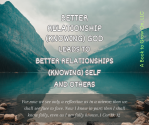
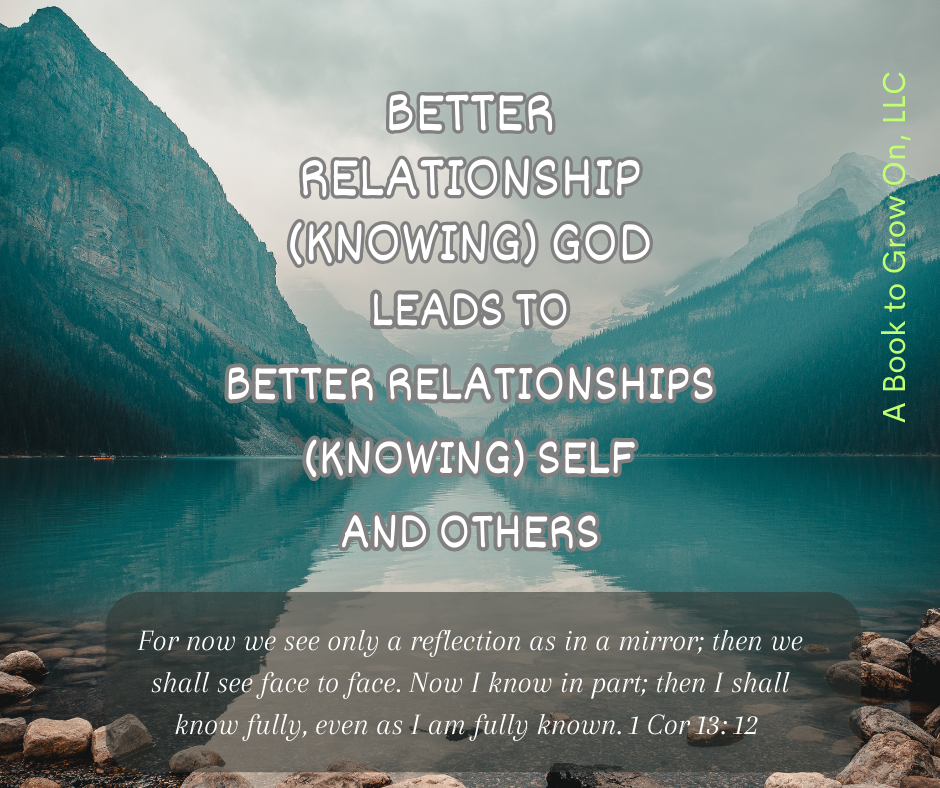







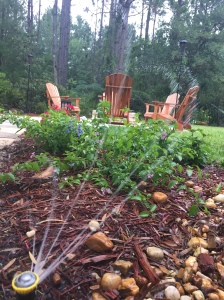
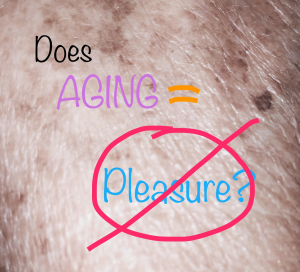



 The pleasure is back! I look forward to hearing the gentle wisps of water now. In fact, I much prefer this sound to the more violent splays of the old sprinklers. Brewing coffee into my favorite mug, I hurry to the garden to make it in time for the music of this water dance in my back yard. It’s gentle enough that the birds stay through the cycles now, adding their song to the symphony as they gather the bits of seeds and dried fruit the squirrels didn’t steal.
The pleasure is back! I look forward to hearing the gentle wisps of water now. In fact, I much prefer this sound to the more violent splays of the old sprinklers. Brewing coffee into my favorite mug, I hurry to the garden to make it in time for the music of this water dance in my back yard. It’s gentle enough that the birds stay through the cycles now, adding their song to the symphony as they gather the bits of seeds and dried fruit the squirrels didn’t steal.

















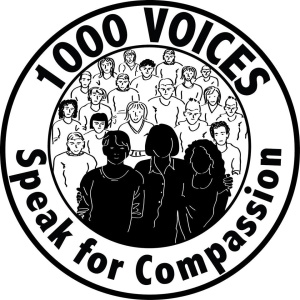 ng in. I wish I could personally invite you all, so instead I’m mass-inviting you!
ng in. I wish I could personally invite you all, so instead I’m mass-inviting you! She came into this world
She came into this world
 But, alas, it was just a little congrats for one year blogging.
But, alas, it was just a little congrats for one year blogging.
